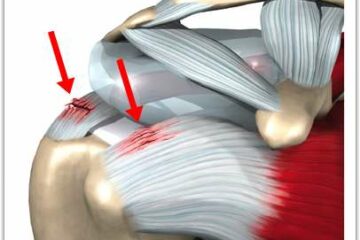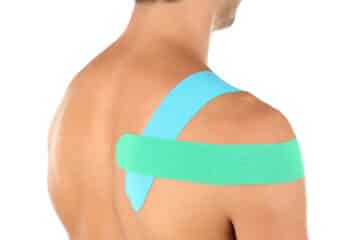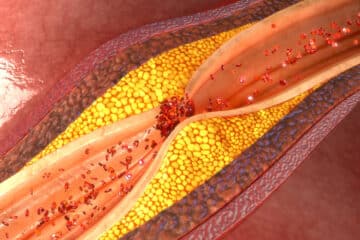
Does rotator cuff tendinosis progress?
Since rotator cuff tendinosis represents a(n) (age related, genetic or post-traumatic) degenerative condition, and degenerative conditions by definition usually progress, the unfortunate answer is yes. However, that does not always correlate with worsening of your pain or symptoms. Some people can have severe tendinosis and insignificant pain. Also, the rate of progression is not very rapid. When I describe rotator cuff tendinosis to people I liken it to their favorite pair of jeans — where the area around the knee is wearing away. With time you will eventually have a hole there. That is what we refer to as a degenerative rotator cuff tear. Again, this is not a rapid progression. Trauma, falls, etc can hasten the progression, but this is not typical. Once the tendinosis progresses to the point where some of the rotator cuff has separated from the bone, you now have a partial thickness rotator cuff tear.
Do partial rotator cuff tears progress?

Great question — and a controversial question too. Some older scientific studies show that nearly 50 percent of partial thickness tears can progress to full thickness rotator cuff tears, however, more recent studies call that into question. Given the scientific literature that exists, you should probably NOT consider surgery to prevent a partial tear from becoming a full tear.
If you suffer from rotator cuff tendinosis or a partial rotator cuff tear — you were treated and your symptoms resolved — what next? A repeat MRI or ultrasound study in a year or so to visually examine the rotator cuff and be sure the tear has not progressed. Pain or lack of pain is not an indication of progression since many other structures within the shoulder can hurt — such as the biceps tendon, the bursa, the other muscles, etc.












second injury and third surgry on right shoulder. Surgry number 3 was to go in and fix a tesr in the rotor cuff, but the doctor said that the tear was not significate enough to fix, now I cannot lift with right arm, upon trying to lift right shoulder fill up with fluid and sells double the size. He released me after 3.5 weeks after surgry with no restrictions. What do I need to do?
Susan … I’m sorry you are in so much pain. Perhaps a second opinion by an upper extremity or sports medicine physician who specializes in shoulders is in order.
Generally speaking — Not all tears hurt. Not all pain in and around the shoulder is due to a tear. Most people do not even know they have a tear.
Good luck on your search…
I avoided a fall down a flight of stairs about 9 myths ago. My MRI revealed a subscapularis full thickness tear. During the first 3 mths, I developed adhesive capsulitis and underwent a capsular release about 8 wks ago with no repair of the tendon. My surgeon told me that it appeared on MRI as a full thickness but as he cleaned out the scar tissue it was more partial. I work a physical job and workout regularly. I have severe pain behind the shoulder blade along with weakness, putting hand on hip, reaching from one shoulder to the other and pressure on my stomach.
Will this subscapularis tear heal or progress and eventually need surgical intervention?
What would be a good indication of whether my symptoms are from the tendon tear or frozen shoulder?
Thanks for your help!
Hi Dawn… I can not answer you without examining you. In general, subscapularis tears require a repair. But complications like a frozen shoulder can be a problem be surgery can make a shoulder even more stiff. If you have any specific questions that have yet been answered I suggest you seek out a second opinion.
Good Luck
Howard Luks
Thank you for your honest answers!
Can adhesive capsulitis affect my neck muscles resulting in jaw popping on the other side of my face?
Thanks!
Thank you for your prompt answers!
With a partial tear of the subscapularis tendon, what type of symptoms should I look for?
Thanks again!